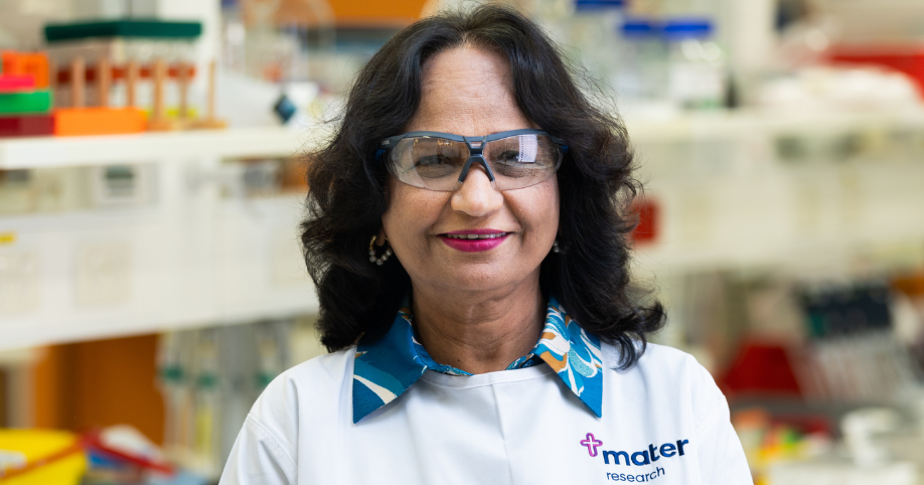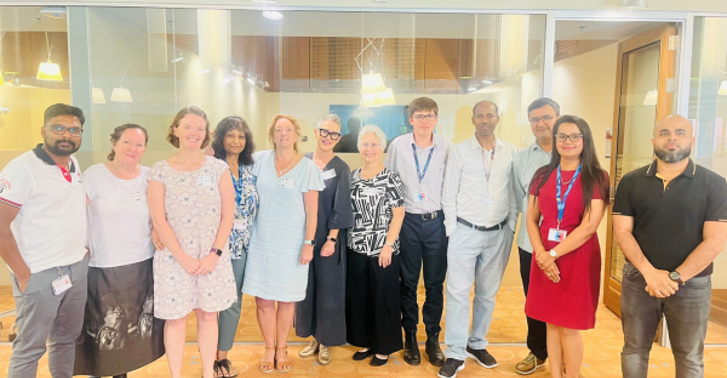
A leading women’s cancer researcher who discovered a cause for an aggressive form of the disease has herself been diagnosed with endometrial cancer, originating from the mutated tumour suppressor protein, P53 that she functionally characterised in a ground-breaking study 20 years ago.
Mater Researcher Professor Kum Kum Khanna published in Nature Genetics how the normal P53 protein prevents cells with damaged DNA from dividing to prevent development of aggressive forms of cancers,
P53 is a natural tumour suppressor but, when mutated, can cause cancers to be aggressive and is linked to a poor prognosis and metastases of a wide-variety of cancers.
Currently the lead of the Tumour Biology and Therapeutics Research Group, Prof Khanna, 62, visited her GP after experiencing post-menopausal bleeding.
“I was sent for an ultrasound, and they identified that my endometrium was thickened so did a curation and put in a Mirena to assist with hormones,” she said.
“Three months later, the bleeding returned so they did another curation and found the cancer. It was tiny, the size of a pimple.
“I got the scare of my life when my doctor told me that not only was it a grade three cancer, but it also had the P53 mutation.”
Endometrial cancer is most common cancer type in post-menopausal women aged over 55.
And almost 100 per cent of high-grade ovarian cancers also have P53 mutations.
Having had a total hysterectomy to remove all signs of cancer, Prof Khanna urges all women to look for signs of endometrial cancer and seek medical attention if they notice:
any bleeding in post-menopausal women
persistent or abnormal bleeding in younger women
discharge or pain in the pelvic area
blood in urine.
Prof Khanna, whose career-long scientific discoveries have included how different genes and proteins within the biology of tumours create aggressive cancers, said her brush with cancer had changed her perspective on her research work. She hopes to translate her work on basic understanding of cellular and molecular pathways involved in cancer development and progression to improve outcomes for women with aggressive forms of disease.
“I now see myself as a consumer in my own research, and I’m always available to other researchers for a consumer perspective,” she said.
“If you catch it early, disease can be curable.“



